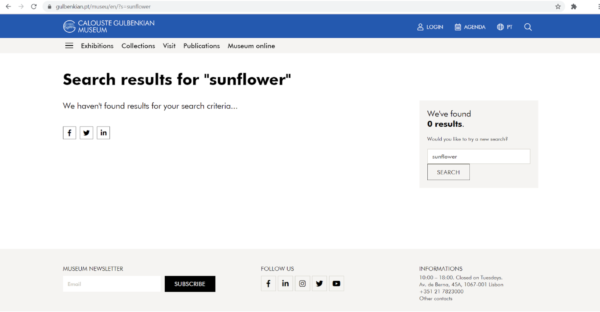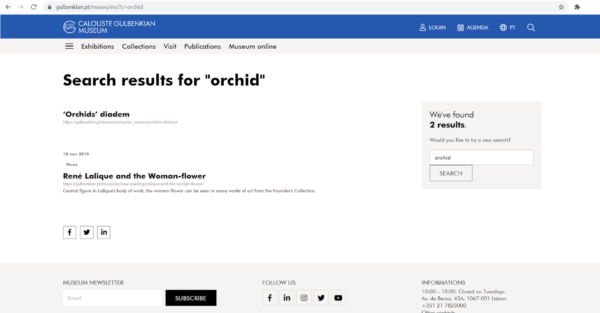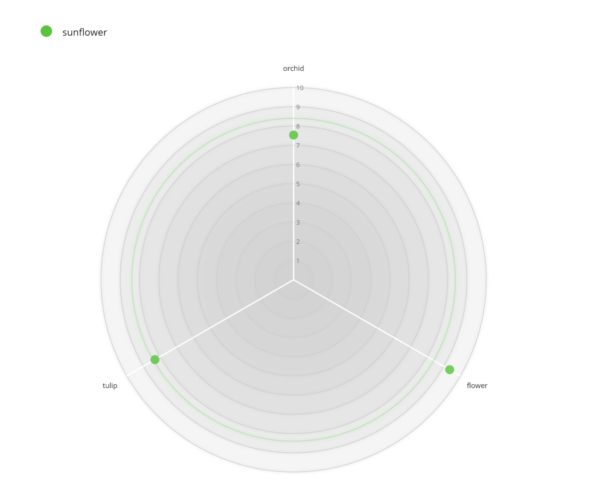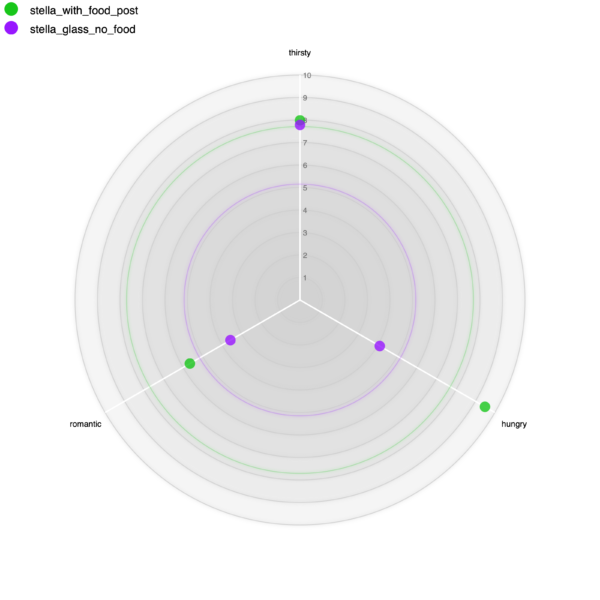*Digital Asset Management
At the beginning of February, I presented a webinar (hosted by DAM leader Capture) on how neuroscience can help reveal implicit associations of digital assets. One of the takeaways of the ensuing Q&A session was that semantic distance calculations can make digital asset searching and retrieval more intuitive. Such calculations require a comprehensive mapping of implicit associations, which Mindspeller has done.
Traditional keywording, even when it’s carefully done, is somewhat restrictive. Usually, search engines can only yield results when they are able to match the terms in a query with specific asset metadata tags or words within a text. But what if your search term hasn’t been explicitly attributed to an asset? In the examples below, visitors of the Calouste Gulbenkian Museum website aren’t redirected to similar results (like ‘orchid’) when the original search term (‘sunflower’) didn’t return any.


Mindspeller offers an alternative. Words and images aren’t isolated in the Mindspeller network. One stimulus implicitly activates others, just as it happens in your brain. They are interconnected thanks to spontaneous associations, which may vary from person to person. This means that even if your search term isn’t directly associated with a specific asset, you’ll still get results. The radar chart below shows that Mindspeller would have been able to find similar results and sort them by relevance (in this case, 1. flower (9.35 Mindspeller Association Score), 2. tulip (8.31) and 3. orchid (7.53)).

Let’s take a look at another example. The radar chart below illustrates how the following “Stella Artois” assets relate to the words ‘thirsty’, ‘hungry’, and ‘romantic’ (which you probably couldn’t include in a traditional taxonomic DAM system).



This example shows how you can turn your DAM experience into a more intelligent, intuitive mood search for assets that trigger intended emotions.
Mindspeller technology allows you to evaluate the semantic distance of your assets to any concept in our rapidly growing neuro-semantic network (representing the collective subconscious and factoring deeply-rooted human biases into your search).
Interested to find out more? Try our Mindspeller Search or contact us!



